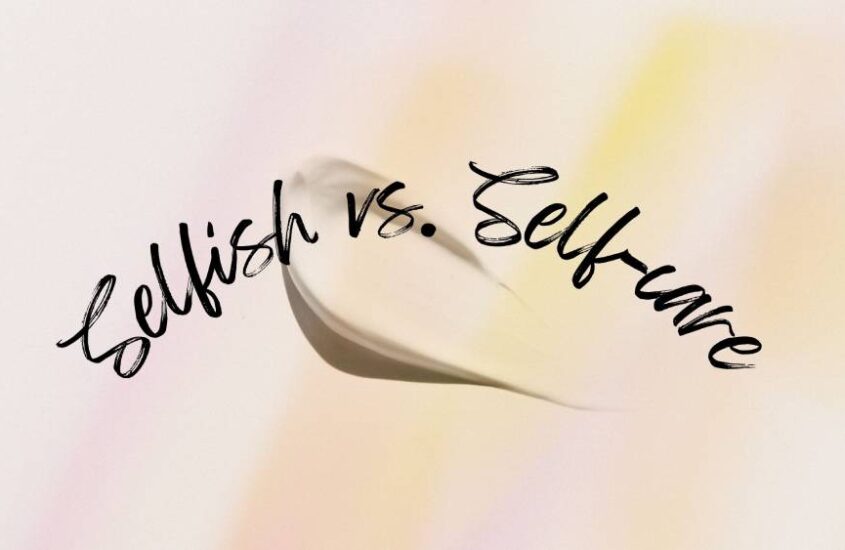Selfish vs. Self-care

What is the difference between “selfish” and self-care?
I’m asking this question because I often hear clients say: “Now I need to be selfish.“
However, they are actually trying to
- focus on their recovery work
- take time for themselves
- or sticking to their values.
There is also the situation when people are trying to do the above things. But they feel guilty, asking “am I being selfish?“
According to Merriam-Webster dictionary, “selfish” is:
“concerned excessively or exclusively with oneself: seeking or concentrating on one’s advantage, pleasure, or well-being without regard for others.”
Most women I have worked with are far from this definition. They are so generous and kind, always wanting to help others even when they don’t have much to give.
Generally speaking, girls are socialized to value relationships. They are more likely to take on a caregiver role. Sometimes they grow up to be women who take care of everybody and everything. They are the person everybody goes to if there is a problem.
What they have to worry about most of the time is:
- They take care of others at the expense of their own self-care,
- and there is a big price to pay when it happens a lot or goes on for an extended period of time.
It becomes a habit. It becomes where their value and worth depend on. When they can’t do it anymore, they feel worthless. Some women lose themselves in the process of always catering to others’ needs.
It can be hard to change.
Because sometimes it is just easier to focus on others. “I’ve got this.” “I don’t have a problem.” “I’m good.” Most of the time, helping others makes them feel good. “If it makes me feel good, it must be the right thing to do.” However, it only lasts until they get overwhelmed or feel resentful or can’t do it anymore.
When you try to change, pulling yourself back from the extreme to be more balanced, it may not feel right at first. When you try to focus on yourself more, do things for you, you may be distracted by feelings of guilt and/or worries about others. “This doesn’t feel right. I must be wrong doing it.” “I hope they don’t see me as being selfish.” “I want to be away from my kids for a few hours. Are they gonna be okay? Does this mean I’m a bad mom?“
Those thoughts can drive you crazy if you allow them. Some people in your life may say things like that to keep you from changing. Because they are used to you being there for them all the time, and plus nobody likes change.
I believe, “selfish” is
- when you completely ignore others, always do things you wanna do when you wanna do it, and get mad when you can’t;
- you always expect others to be the way you want them to be, expect the world to be the way you want it to be;
- when you get into the mindset of “why me” “poor me,” expect others to save you or get you out of your misery;……
Thomas J. Leonard, personal coach and founder of Coach University, said: “Creativity and excellence require selfishness. So does evolution. When you know you’re onto something – a potential breakthrough of any kind – you need the purest kind of focus and concentration possible. You need to answer to the callings of your heart and mind before you anser to the callings of the tribe. You need to accept that a reasonable and responsible level of selfishness builds long-term benefits for every one you care about.“
So I would encourage you to have time and energy in your daily life to take care of You. Maybe stop using the word “selfish” when you are doing things you NEED to support yourself whether physically or emotionally. Because it is hard to strip away the negative connotation of the word “selfish” even if you are using it in a different sense. It may also invalidate what you are trying to do in a subtle way. Moreover, it may increase the guilt you may already feel.
Be BRAVE enough to say, either to your negative inner voice or to others, “I’m NOT being selfish. I’m doing self-care. It is important for my health and well-being. Please support me.“




